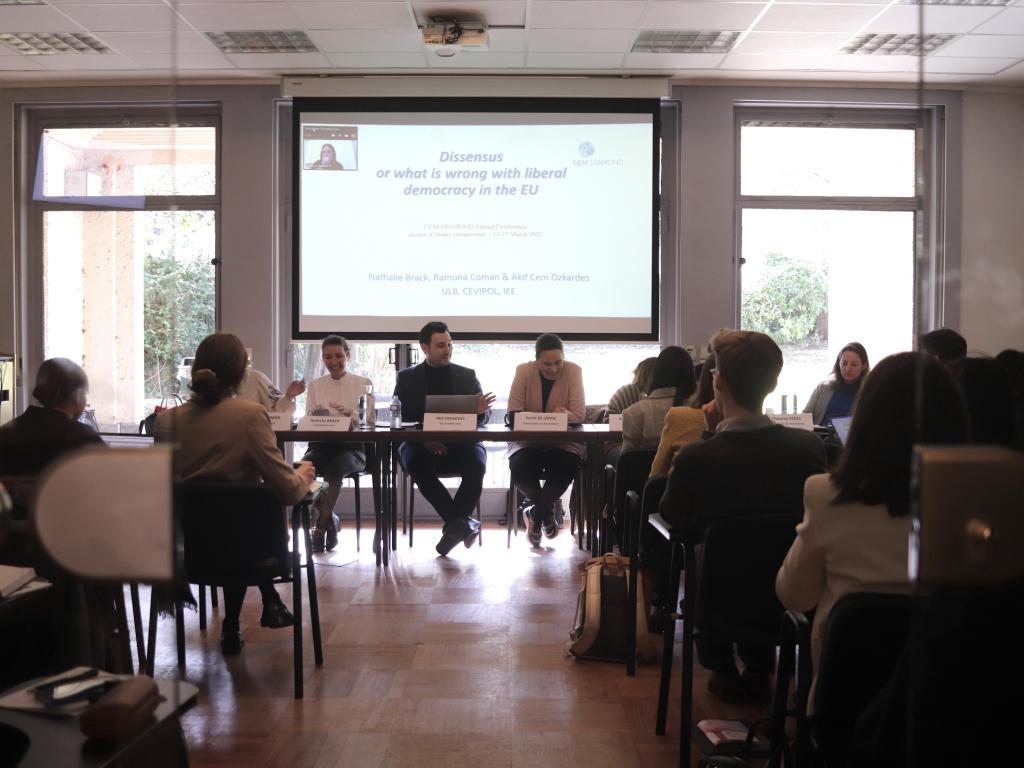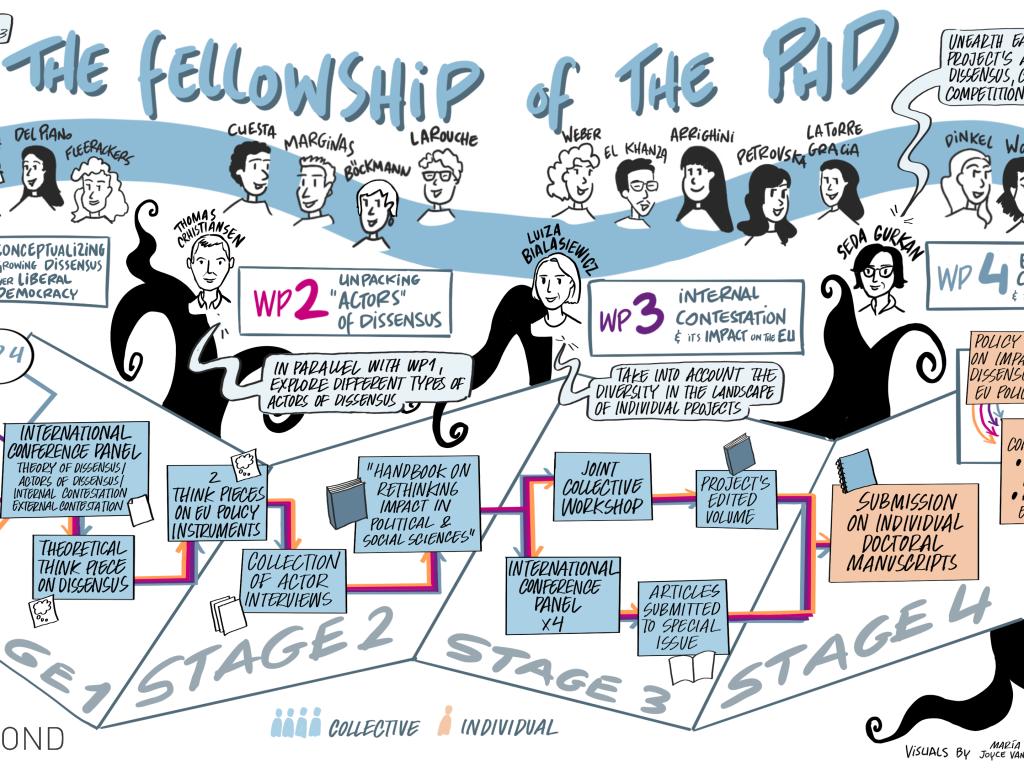Democracy Reimagined: A Reflection from/for both shores of the Mediterranean
Supervisors
- Raffaele Marchetti
- Anders Wivel
Research abstract
This research uses the case of "democratization" in Tunisia after 2011 as an entry point to reflect on the current crisis of democracy.
Debora Del Piano (LUISS/UCPH) is a Marie Skłodowska Curie Doctoral Fellow at LUISS University and University of Copenhagen. Her work explores democracy and ‘democratization’ in the MENA/SWANA region (with a current focus on Tunisia and EU 'democracy support'), as well as their epistemological foundations, drawing together theoretical and methodological insights from International Relations, Democratic Theory, European studies and Middle East and North Africa Studies.
-

The First Annual Conference
17 April 2023
The fellows present their research for the very first time, coupled with panels on the concept of dissensus and Prof. Petra Bárd’s keynote address.
-

Birth of the GEM-DIAMOND Fellowship of the Ph.D.
1 October 2022
16 MSCA Fellows successfully selected following a gruelling selection process.



